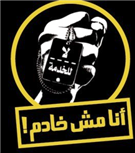Although the Beer el-Sabe (Beer Sheva) Municipality and the local Islamic council eventually compromised and moved the tables selling wine at the Beer Sheva Wine Festival (see Adalah’s Letter to the AG: Stop the Wine Festival) outside of the Big Mosque courtyard, the festival created a general wave of angry reactions among the Arab public. Arab Palestinian politicians and the Arab League condemned the decision to hold the wine festival in the Mosque courtyard for the past several years. The issue received wide coverage in the local and international Arabic, Hebrew, and English media throughout the last month. However, disrespect for the Big Mosque must be seen in the wider context of the general acceptance of desecration of Christian and Muslim holy spaces in Israel. The Big Mosque in Beer el-Sabe is one of hundreds of mosques, churches, and graveyards across the country the sanctity of which is violated.
In 2004, Adalah submitted a petition to the Supreme Court (Press Release: Adalah Demands Legal Recognition for Muslim Holy Sites), representing several religious leaders and local associations, to demand that the Ministry of Religious Affairs begin a program to preserve Islamic holy places in Israel in consultation with Muslim religious leaders, as is done with Jewish holy sites. Adalah argued that the Preservation of Holy Sites Law (1967) aimed to protect holy sites from desecration, prevent obstacles for religious persons from reaching the holy places, and from offending religious feelings. The law entrusts the Minister of Religious Affairs with overseeing the sites, in consultation with religious authorities and with approval from the Minister of Justice, and enacting special regulations to guard holy sites. The Minister of Religious Affairs has used his power since then to regulate Jewish holy sites only, naming them and creating regulations around them that include permitted and forbidden acts and the punishments for violation.
But there are no rules and regulations around non-Jewish holy sites, therefore making it impossible to hold anyone who violates their sanctity accountable. The lack of regulation has led to the neglect of Christian and Muslim holy places, as well as discrimination against them in budget allocation. The Minister allocated funds for Jewish religious sites only, claiming that there are no regulations concerning Islamic holy places.
The court rejected Adalah’s petition in 2009 upon the state’s pledge to allocate a budget of NIS 2 million to maintain Muslim holy sites. (Press Release: Supreme Court Rejects Adalah`s Petition Demanding Protection of Muslim Holy Sites Claiming That it is a “Sensitive Matter”) The court refused to demand that the state issue guidelines to various ministries in regards to the issue, reasoning that the naming of certain Muslim sites as holy “is sensitive.” In addition, the court ordered that the money for religious preservation be given to the Israel Lands Administration (rather than awarding it to the local Islamic Committees), which has not worked at all to preserve Islamic sites in the past 60 years but has at many points contributed to their desecration.
The wine festival held in the courtyard of the Beer el-Sabe Mosque is proof of the need to impose regulations to defend Muslim and Christian holy places. The Beer el-Sabe Municipality’s misleading claim that the festival was not held in the courtyard of the mosque would not have been possible if clear and written regulations regarding activities in holy places were in place.
![[The wine festival in 2012 in front of the Big Mosque of Bir el-Sabe. Image used with permission from Arab News in the Naqab.]](https://kms.jadaliyya.com/Images/357x383xo/winefestschmelz.jpg)

















